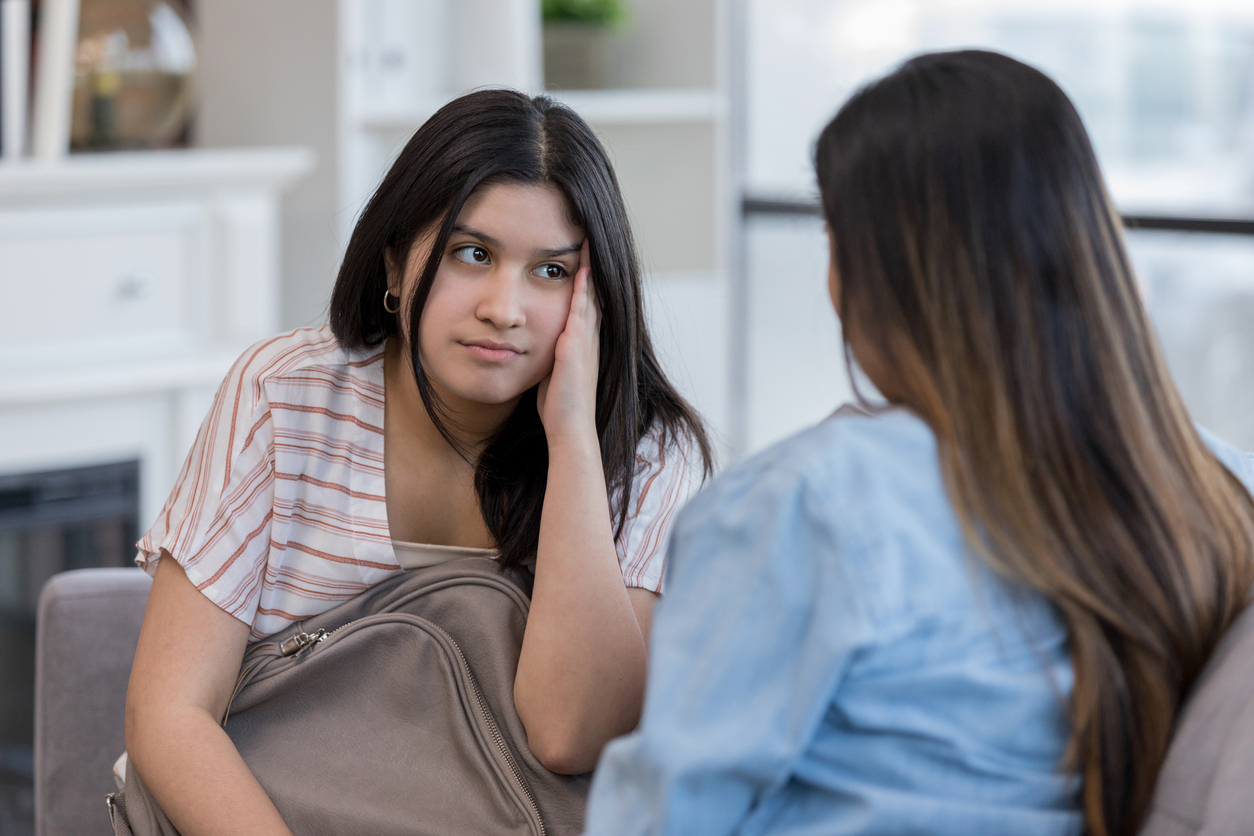Teenage girls feel a lot of stress as they grow and navigate their lives. According to the CDC, 57% of U.S. teen girls feel “persistently sad or hopeless”. That is double the rate of boys. Here are some factors that may contribute to girls’ distress:
- Social factors: They may feel they are treated differently because of their gender. They may not feel equal to boys. Girls are more likely to experience sexism, violence, and harassment. It makes them uncomfortable, upset, and frustrated.
- Outside pressures: Teenage girls face more pressure to be perfect. They may be worried about how they look, their body, or the friends they have. This can lead to low self-esteem, eating disorders, and body image issues.
- Hormonal changes: Girls experience big shifts during puberty. Those shifts can cause mood swings, premenstrual symptoms, and new feelings of depression and anxiety.
- Peer relationships: Girls more often face issues like peer pressure and bullying which can impact their mental well-being.
Warning Signs to Watch For
Changes in Behavior
Look out for sudden changes in things like sleep patterns and eating habits. Irritability or extreme anger may be signs of emotional problems.
Unstable Emotions
Teens dealing with mental health issues may have intense emotional swings. They might appear very sad, hopeless, anxious, or overwhelmed.
Social Isolation
Teenage girls may withdraw from their social lives. Look for signs of loneliness. Are they avoiding social events or ignoring friends?
Physical Symptoms
Watch for unexplained changes like loss of appetite, weight loss or gain, or regular headaches. Don’t ignore physical symptoms that might be caused by mental distress.
Substance Abuse
Look for signs of drug or alcohol use. That can be a way for teens to cope with the emotional pain they are facing.
Issues at School
Notice if there is a sudden drop in grades, a lack of focus, or difficulty finishing school work. These challenges may come from mental health struggles.
How Cognitive Behavioral Therapy Can Help
If you do see signs of mental health issues, cognitive behavioral therapy (CBT) could be helpful. CBT is a proven treatment for mental health issues as it focuses on finding and changing negative thoughts and behaviors.
For teenagers, CBT is easy-to-follow and helps them understand their emotions, thoughts, and behaviors. They can learn coping skills and strategies to reframe negative feelings. With this, they are able to better manage stress. When they develop healthier ways of thinking, they feel better. CBT can help teens learn to recognize and replace self-defeating thoughts. When teens develop these skills, they will also build resilience and self-esteem.
For teenage girls in particular, CBT can help them:
- Learn to identify biased thoughts. They can be less critical and develop more realistic and positive thoughts.
- Develop a more positive self-image. By exploring negative beliefs about how they look, CBT can help teens accept themselves just as they are. They can build resilience to bounce back from issues.
- Gain tools to manage anxiety. CBT can help girls overcome their fears, reduce anxiety levels, and improve how they feel.
- Learn how to communicate more effectively. They can learn to be assertive, solve problems, and navigate friendships better.
- Set achievable goals. CBT helps girls make positive changes in daily routines and habits.
The mental health crisis among teenage girls is growing. Watch for signs of distress so you can intervene as soon as possible.




